Plenary Speakers
-

Yonina C. Eldar
Technion, Israel -
Monday, December 11, 09:00 - 10:00 am
Sub-Nyquist Sampling without Sparsity and Phase Retrieval
Abstract: In recent years there has been an explosion of work on exploiting sparsity in order to reduce sampling rates in a wide-range of applications. In this talk, we consider several examples in which sub-Nyquist sampling is possible without assuming any structure on the signal being sampled. This is possible by careful design of the measurement scheme, together with nonlinear recovery methods. We then show how these concepts of measurement design and optimization-based recovery can be used to tackle a very different set of problems: phase retrieval from Fourier measurements. We begin by considering sampling a signal when we are interested in recovering its power spectrum. Next, we develop the minimal sampling rates required to achieve minimal distortion when representing an arbitrary signal by quantized samples. We then treat sampling of ultrasound signals where the goal is to create a beamformed image from the given samples. Finally, we propose several new measurement techniques in optical imaging that enable phase retrieval even in 1D problems from Fourier measurements.
Biography
Yonina C. Eldar received a B.Sc. in Physics in 1995 and a B.Sc. degree in Electrical Engineering in 1996 both from Tel-Aviv University (TAU), Tel-Aviv, Israel, and the Ph.D. degree in Electrical Engineering and Computer Science in 2002 from MIT. She is currently a Professor in the Department of Electrical Engineering at the Technion - Israel Institute of Technology, Haifa, Israel, where she holds the Edwards Chair in Engineering. She is also a Research Affiliate with the Research Laboratory of Electronics at MIT and was a Visiting Professor at Stanford University, Stanford, CA. Dr. Eldar has received many awards for excellence in research and teaching, including the IEEE Signal Processing Society Technical Achievement Award (2013), the IEEE/AESS Fred Nathanson Memorial Radar Award (2014), and the IEEE Kiyo Tomiyasu Award (2016). She was a Horev Fellow of the Leaders in Science and Technology program at the Technion and an Alon Fellow. She received the Michael Bruno Memorial Award from the Rothschild Foundation, the Weizmann Prize for Exact Sciences, the Wolf Foundation Krill Prize for Excellence in Scientific Research, the Henry Taub Prize for Excellence in Research (twice), the Hershel Rich Innovation Award (three times), the Award for Women with Distinguished Contributions, the Andre and Bella Meyer Lectureship, the Career Development Chair at the Technion, the Muriel & David Jacknow Award for Excellence in Teaching, and the Technion’s Award for Excellence in Teaching (2 times). She received several best paper awards and best demo awards together with her research students and was selected as one of the 50 most influential women in Israel. She is a member of the Young Israel Academy of Science and Humanities and the Israel Committee for Higher Education, and an IEEE Fellow. She is the Editor in Chief of Foundations and Trends in Signal Processing, and a member of several IEEE Technical Committees. In the past, she was a Signal Processing Society Distinguished Lecturer, and served as an associate editor for several journals. She is author of the book "Sampling Theory: Beyond Bandlimited Systems" and co-author of the books "Compressed Sensing" and "Convex Optimization Methods in Signal Processing and Communications", all published by Cambridge University Press.
-
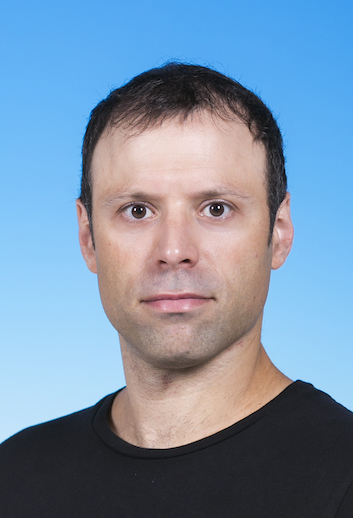
Daniel P. Palomar
Hong Kong University of Science and Technology, Hong Kong -
Monday, December 11, 3:30 - 4:30 pm
A Signal Processing and Optimization Perspective on Financial Engineering
Abstract: Financial engineering and electrical engineering are seemingly different areas that share strong underlying connections. Both areas rely on statistical analysis and modeling of systems and the underlaying time series. Either modeling price fluctuations in the financial markets or modeling, say, channel fluctuations in wireless communication systems. Having a model of reality allows us to make predictions and to accordingly optimize the future strategies. It is as important to optimize our investment strategies in a financial market as it is to optimize the signal transmitted by an antenna in a wireless link. The foundations of both areas are the same in disguise and lie on signal processing and optimization. This talk provides a glimpse of financial engineering from a signal processing and optimization perspective, while exploring connections to other engineering disciplines.
-
Biography
Daniel P. Palomar (S'99-M’03-SM’08-F’12) received the Electrical Engineering and Ph.D. degrees from the Technical University of Catalonia (UPC), Barcelona, Spain, in 1998 and 2003, respectively. He is a Professor in the Department of Electronic and Computer Engineering at the Hong Kong University of Science and Technology (HKUST), Hong Kong, which he joined in 2006. Since 2013 he is a Fellow of the Institute for Advance Study (IAS) at HKUST. He had previously held several research appointments, namely, at King's College London (KCL), London, UK; Stanford University, Stanford, CA; Telecommunications Technological Center of Catalonia (CTTC), Barcelona, Spain; Royal Institute of Technology (KTH), Stockholm, Sweden; University of Rome “La Sapienza”, Rome, Italy; and Princeton University, Princeton, NJ. His current research interests include applications of convex optimization theory, game theory, and variational inequality theory to financial systems, big data systems, and communication systems. Dr. Palomar is an IEEE Fellow, a recipient of a 2004/06 Fulbright Research Fellowship, the 2004 and 2015 (co-author) Young Author Best Paper Awards by the IEEE Signal Processing Society, the 2015-16 HKUST Excellence Research Award, the 2002/03 best Ph.D. prize in Information Technologies and Communications by the Technical University of Catalonia (UPC), the 2002/03 Rosina Ribalta first prize for the Best Doctoral Thesis in Information Technologies and Communications by the Epson Foundation, and the 2004 prize for the best Doctoral Thesis in Advanced Mobile Communications by the Vodafone Foundation and COIT. He is a Guest Editor of the IEEE JOURNAL OF SELECTED TOPICS IN SIGNAL PROCESSING 2016 Special Issue on “Financial Signal Processing and Machine Learning for Electronic Trading” and has been Associate Editor of IEEE TRANSACTIONS ON INFORMATION THEORY and of IEEE TRANSACTIONS ON SIGNAL PROCESSING, a Guest Editor of the IEEE SIGNAL PROCESSING MAGAZINE 2010 Special Issue on “Convex Optimization for Signal Processing,” the IEEE JOURNAL ON SELECTED AREAS IN COMMUNICATIONS 2008 Special Issue on “Game Theory in Communication Systems,” and the IEEE JOURNAL ON SELECTED AREAS IN COMMUNICATIONS 2007 Special Issue on “Optimization of MIMO Transceivers for Realistic Communication Networks.”
-
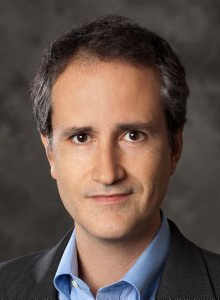
Antonio Ortega
University of Southern California, USA -
Tuesday, December 12, 09:00 - 10:00 pm
Graph Signal Processing Methods and their Application to Sensor Networks
Information gathering and processing in sensor networks was an early motivating application in the early 2000's for the study of transforms for graph signals. In this talk we start by providing a brief review of early work on signal representations for sensor data. Then we discuss how these methods have been extended to arbitrary graphs and summarize some key recent results in graph signal processing. Finally, we discuss how these results can be applied to sensor networks, focusing on problems such as graph identification, sensor selection, or distributed processing.
-
Biography
Antonio Ortega received the Telecommunications Engineering degree from the Universidad Politecnica de Madrid, Madrid, Spain in 1989 and the Ph.D. in Electrical Engineering from Columbia University, New York, NY in 1994. In 1994 he joined the Electrical Engineering department at the University of Southern California (USC), where he is currently a Professor and where he has served as Associate Chair. He is a Fellow of the IEEE since 2007, and a member of ACM and APSIPA. He has served as associate editor for several IEEE journals, was chair of the Image and Multidimensional Signal Processing (IMDSP) technical committee, a member of the Board of Governors of the IEEE Signal Processing Society (2002) and technical program co-chair of ICIP 2008 and PCS 2013. He is the inaugural Editor-in-Chief of the APSIPA Transactions on Signal and Information Processing, launched by APSIPA and Cambridge University Press in 2012. He has received several paper awards, including most recently at ICIP 2011 and Globecom 2012, and was a plenary speaker at ICIP 2013. His recent research work is focusing on distributed compression, multiview coding, error tolerant compression, wavelet-based signal analysis and graph signal processing. Close to 40 PhD students have completed their PhD thesis under his supervision at USC and his work has led to over 300 publications in international conferences and journals, as well as several patents.
-
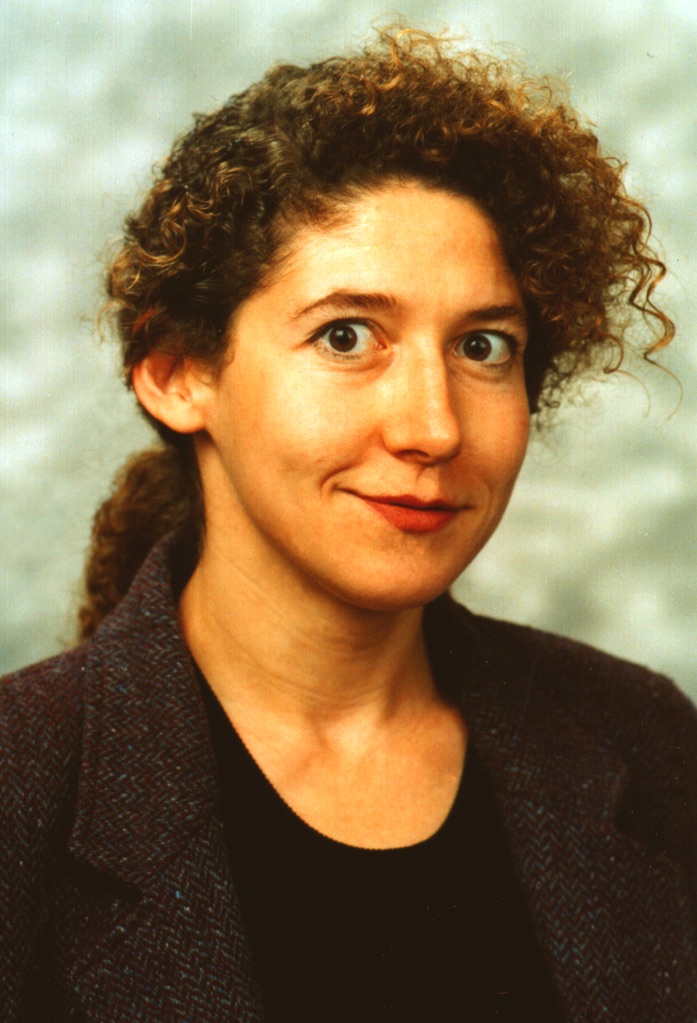
Tülay Adali
University of Maryland Baltimore County, USA -
Tuesday, December 12, 3:30 - 4:30 pm
Data Fusion through Matrix and Tensor Factorizations: Uniqueness, Diversity, and Interpretability
Abstract: Fusion of multiple sets of data, either of the same type as in multiset data or of different types and nature as in multi-modality data, is inherent to many problems in engineering and computer science. In data fusion, since most often, very little is known about the relationship of the underlying processes that give rise to such data, it is desirable to minimize the modeling assumptions, and at the same time, to maximally exploit the interactions within and across the multiple sets of data. This is one of the reasons for the growing importance of data-driven methods in data fusion tasks. Models based on matrix or tensor decompositions allow data sets to remain in their most explanatory form while admitting a broad range of assumptions among their elements. This talk will provide an overview of the main approaches that have been successfully applied for fusion of multiple datasets with a focus on the interrelated concepts of uniqueness, diversity, and interpretability. Diversity refers to any structural, numerical, or statistical inherent property or assumption on the data that contributes to the identifiability of the model, and for multiple datasets, provides the link among these datasets. Hence, diversity enables uniqueness, which is key to interpretability, the ability to attach a physical meaning to the final decomposition. The importance of these concepts as well as the challenges that remain are highlighted through a number of practical examples.
-
Biography
Tülay Adali received the Ph.D. degree in Electrical Engineering from North Carolina State University, Raleigh, NC, USA, in 1992 and joined the faculty at the University of Maryland Baltimore County (UMBC), Baltimore, MD, the same year. She is currently a Distinguished University Professor in the Department of Computer Science and Electrical Engineering at UMBC and is the director of the Machine Learning for Signal Processing Lab (MLSP Lab).Prof. Adali assisted in the organization of a number of international conferences and workshops including the IEEE International Conference on Acoustics, Speech, and Signal Processing (ICASSP), the IEEE International Workshop on Neural Networks for Signal Processing (NNSP), and the IEEE International Workshop on Machine Learning for Signal Processing (MLSP). She was the General Co-Chair, NNSP (2001–2003); Technical Chair, MLSP (2004–2008); Program Co-Chair, MLSP (2008, 2009, and 2014), International Conference on Independent Component Analysis and Source Separation (2009); Publicity Chair, ICASSP (2000 and 2005); and Publications Co-Chair, ICASSP 2008. She is the Technical Program Co-Chair for ICASSP 2017 and Special Sessions Co-Chair for ICASSP 2018. Prof. Adali chaired the IEEE Signal Processing Society (SPS) MLSP Technical Committee (2003–2005, 2011–2013), served on the SPS Conference Board (1998–2006), IEEE SPS Signal Processing Theory and Methods (2010-2015) Technical Committee, and the IEEE SPS Bio Imaging and Signal Processing Technical Committee (2004–2007). She was an Associate Editor for IEEE Transactions on Signal Processing (2003–2006), IEEE Transactions on Biomedical Engineering (2007–2013), IEEE Journal of Selected Areas in Signal Processing (2010-2013), and Elsevier Signal Processing Journal (2007–2010). She is currently serving on the Editorial Boards of the Proceedings of the IEEE and Journal of Signal Processing Systems for Signal, Image, and Video Technology. Prof. Adali is a Fellow of the IEEE and the AIMBE, a Fulbright Scholar, recipient of 2013 University System of Maryland Regents' Award for Research, and an NSF CAREER Award. She has received a number of Best Paper Awards including a 2010 IEEE Signal Processing Society Best Paper Award. She was an IEEE Signal Processing Society Distinguished Lecturer for 2012 and 2013. Her current research interests are in the areas of statistical signal processing, machine learning for signal processing, and applications in medical image analysis and fusion.
-
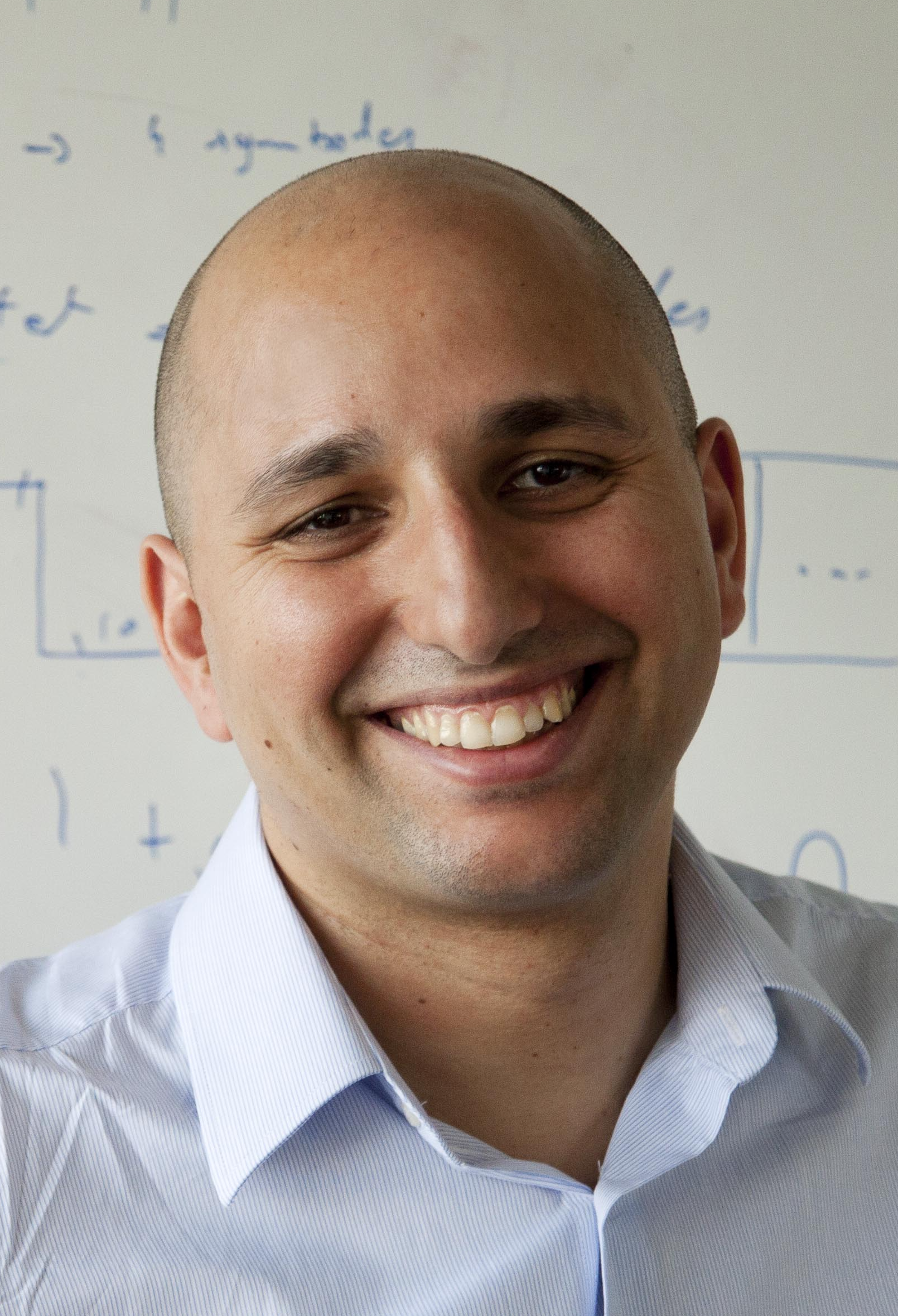
Mérouane Debbah
Huawei, France -
Wednesday, December 13, 09:00 - 10:00 am
Artificial Intelligence for 5G : Challenges and Opportunities
Abstract: Mobile cellular networks are becoming increasingly complex to manage while classical deployment/optimization techniques are cost-ineffective and thus seen as stopgaps. This is all the more difficult considering the extreme constraints of 5G networks in terms of data rate (more than 10 Gb/s), massive connectivity (more than 1000000 devices per km2), latency (under 1ms) and energy efficiency (a reduction by a factor of 100 with respect to 4G network). Unfortunately, the development of adequate solutions is severely limited by the scarcity of the actual resources (energy, bandwidth and space). Recently, the community has turned to a new resource known as Artificial Intelligence at all layers of the network to exploit the increasing computing power afforded by the improvement in Moore's law in combination with the availability of huge data in 5G networks. This is an important paradigm shift which considers the increasing data flood/huge number of nodes as an opportunity rather than a curse. In this talk, we will discuss through various examples how the recent advances in big data algorithms can provide an efficient framework for the design of 5G Intelligent Networks.
-
Biography
Mérouane Debbah entered the Ecole Normale Supérieure de Cachan (France) in 1996 where he received his M.Sc and Ph.D. degrees respectively. He worked for Motorola Labs (Saclay, France) from 1999-2002 and the Vienna Research Center for Telecommunications (Vienna, Austria) until 2003. From 2003 to 2007, he joined the Mobile Communications department of the Institut Eurecom (Sophia Antipolis, France) as an Assistant Professor. Since 2007, he is a Full Professor at CentraleSupelec (Gif-sur-Yvette, France). From 2007 to 2014, he was the director of the Alcatel-Lucent Chair on Flexible Radio. Since 2014, he is Vice-President of the Huawei France R&D center and director of the Mathematical and Algorithmic Sciences Lab. His research interests lie in fundamental mathematics, algorithms, statistics, information & communication sciences research. He is an Associate Editor in Chief of the journal Random Matrix: Theory and Applications and was an associate and senior area editor for IEEE Transactions on Signal Processing respectively in 2011-2013 and 2013-2014. Mérouane Debbah is a recipient of the ERC grant MORE (Advanced Mathematical Tools for Complex Network Engineering). He is a IEEE Fellow, a WWRF Fellow and a member of the academic senate of Paris-Saclay. He has managed 8 EU projects and more than 24 national and international projects. He received 16 best paper awards, among which the 2007 IEEE GLOBECOM best paper award, the Wi-Opt 2009 best paper award, the 2010 Newcom++ best paper award, the WUN CogCom Best Paper 2012 and 2013 Award, the 2014 WCNC best paper award, the 2015 ICC best paper award, the 2015 IEEE Communications Society Leonard G. Abraham Prize, the 2015 IEEE Communications Society Fred W. Ellersick Prize, 2016 IEEE Communications Society Best Tutorial paper award and the 2016 European Wireless Best Paper Award as well as the Valuetools 2007, Valuetools 2008, CrownCom2009, Valuetools 2012 and SAM 2014 best student paper awards. He is the recipient of the Mario Boella award in 2005, the IEEE Glavieux Prize Award in 2011 and the Qualcomm Innovation Prize Award in 2012.
-
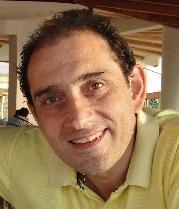
Nikos Sidiropoulos
University of Minnesota, USA -
Wednesday, December 13, 3:30 - 4:30 pm
Tensors and Probability: An Intriguing Union
Abstract: We reveal an interesting link between tensors and multivariate statistics. The rank of a multivariate probability tensor can be interpreted as a nonlinear measure of statistical dependence of the associated random variables. Rank equals one when the random variables are independent, and complete statistical dependence corresponds to full rank; but we show that rank as low as two can already model strong statistical dependence. In practice we usually work with random variables that are neither independent nor fully dependent -- partial dependence is typical, and can be modeled using a low-rank multivariate probability tensor. Directly estimating such a tensor from sample averages is impossible even for as few as ten random variables taking ten values each -- yielding a billion unknowns; but we often have enough data to estimate lower-order marginalized distributions. We prove that it is possible to identify the higher-order joint probabilities from lower order ones, provided that the higher-order probability tensor has low-enough rank, i.e., the random variables are only partially dependent. We also provide a computational identification algorithm that is shown to work well on both simulated and real data. The insights and results have numerous applications in estimation, hypothesis testing, completion, machine learning, and system identification. Low-rank tensor modeling thus provides a `universal’ non-parametric (model-free) alternative to probabilistic graphical models.
-
Biography
Nikos Sidiropoulos received the Diploma in Electrical Engineering from the Aristotelian University of Thessaloniki, Greece, and M.S. and Ph.D. degrees in Electrical Engineering from the University of Maryland–College Park, in 1988, 1990 and 1992, respectively. He served as Assistant Professor at the University of Virginia (1997-1999); Associate Professor at the University of Minnesota–Minneapolis (2000-2002); Professor at the Technical University of Crete, Chania–Crete, Greece (2002-2011); and Professor at the University of Minnesota–Minneapolis (2011-), where he holds an ADC Chair in Digital Technology (2015-). His research interests are in signal processing, communications, optimization, tensor decomposition, and factor analysis. His current research focuses primarily on signal and tensor analytics and optimization-based algorithms, with applications in machine learning and communications. He received the NSF/CAREER award in 1998, and the IEEE Signal Processing Society (SPS) Best Paper Award in 2001, 2007, and 2011. He served as IEEE SPS Distinguished Lecturer (2008-2009), and as Chair of the IEEE Signal Processing for Communications and Networking Technical Committee (2007-2008), and was recently elected Vice President - Membership of the IEEE Signal Processing Society. He received the 2010 IEEE Signal Processing Society Meritorious Service Award, and the 2013 Distinguished Alumni Award from the University of Maryland, Dept. of ECE. He is a Fellow of IEEE (2009) and a Fellow of EURASIP (2014).



